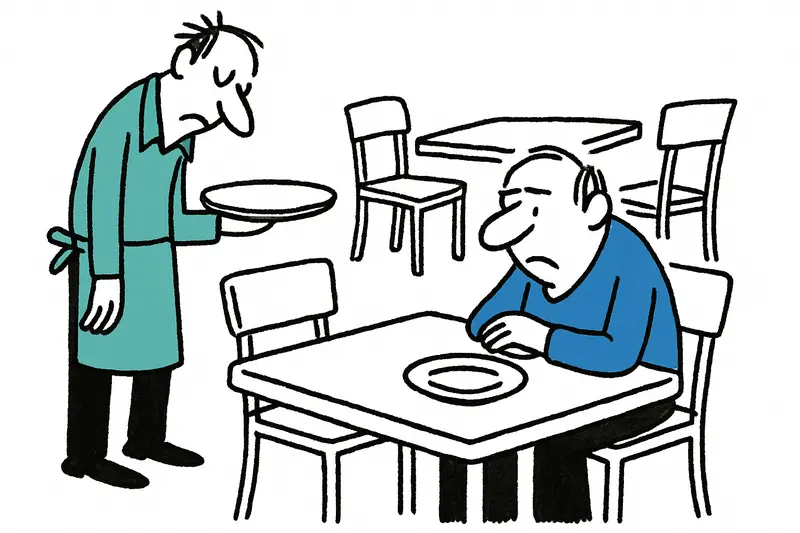Many venues on Mallorca report lower earnings: tourists shop more in supermarkets and skip dinners, which is becoming a noticeable burden for restaurateurs.
The terraces are there, the guests aren’t
I was last week on Paseo Marítimo around 8 p.m. Usually the promenade overflows, plates clatter, lights flash. This time: more waiters than guests, and the music muted. This isn't imagination – many restaurateurs report noticeably more cautious tourists.
No big spending anymore
"People count beforehand", says Carmen, who runs a small fish tavern in the old town. She tells of families who prefer larger supermarket purchases and cook in their apartment in the evening. "Earlier they came in spontaneously. Now they first look at the prices."
For operators this means: less turnover, although in recent years new kitchen devices, more modern furnishings and better ventilation have been invested in. Some places have closed weekdays during this off-season and now open only on weekends.
Costs rise, visitors spend less
On the other hand higher operating costs bite: supplier prices, energy, staff – all more expensive than two years ago. The tension is clear: guests' spending declines while the businesses' expenditures rise. A vicious circle.
A club owner who wishes to remain anonymous sums it up: "People are on a starvation budget. Once you charge admission or name drink prices, the queue thins out."
Cheap competition and rules set additional limits
Not only private budgets matter. More and more affordable supermarkets near the beach mean visitors go out to eat less often. Then come stricter rules for outdoor terraces, complaints from residents and administrative requirements that add work and costs.
Some restaurateurs now speak of structural changes in guest behavior: shorter stays, fewer dinners in the evening, more do-it-yourself vacations. This is not a trend visible only in one cove – from Alcúdia to Cala d'Or we hear similar complaints.
How is the industry reacting?
Responses vary: some establishments lower prices for lunch menus, others rely on special events to attract audiences again. Still others shorten opening hours or seek cooperation with delivery services. None of these paths is without risk — requires courage and often new investments.
At the end of the evening, between parked chairs and half-empty glasses, the question remains: will the guests return when costs fall? Or has spending behavior changed sustainably? The coming months should show whether Mallorca can keep its vibrant restaurant scene stable.
Similar News

Around one-fifth of Mallorca's hotels stay open in winter
Mallorca isn't completely quiet in winter: around 20 percent of the properties stay open, mainly for older visitors and ...

Quality Seal for Vacation Rentals: Holidu and Island Council Agree on Stricter Rules
The Island Council and the German booking platform Holidu have reached an agreement: Only officially licensed vacation a...

Sóller and Port de Sóller: Autumn Crowds — Buses Packed, Parking Scarce
Even in October, many visitors still flock to Sóller and Port de Sóller. Residents report full buses, missing parking sp...

Due to Fire Hazard: Discover Airlines Bans Power Bank Charging On Board – What Mallorca Travelers Need to Know Now
Discover Airlines has banned charging power banks on board. Carry-on transport remains allowed, but Mallorca passengers ...

Higher Revenues Despite Fewer German Guests: Tourism in the Balearic Islands 2025
The Balearic Islands are recording significantly higher hotel revenues this summer — hotels are raising prices, renovati...
